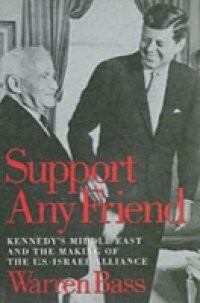They were three of the most memorable figures of the twentieth century: David Ben-Gurion, Israel's indomitable founding father; Egyptian President Gamal Abdul Nasser, the charismatic Arab nationalist; and the young and dynamic John F. Kennedy. Now Warren Bass illuminates these three extraordinary men and their diplomatic struggles at the height of the Cold War, offering stunning new insights into the origins of today's Middle East. The Kennedy period, Bass writes, was no "mere place-marker between Suez and the Six Day War, between the martial frostiness of Dwight Eisenhower and the Texas warmth of Lyndon Johnson." He shows how Kennedy sought greater influence in the Arab world, offering more foreign aid and a new diplomatic overture to Nasser, the Arab world's leading radical. For a while, Kennedy and Nasser engaged in a rich personal correspondence. But the rapprochement was cut short by Nasser's impulsive intervention in Yemen's civil war, which led Kennedy to deploy fighter jets in Saudi Arabia as a warning to Egypt. Meanwhile, Kennedy made the first major U.S. arms sale to Israel, providing it with advanced Hawk anti-aircraft missiles--a crucial policy shift that marks the origins of America's alliance with the Jewish state. But Kennedy also feared that Israel would get the bomb and demanded that Ben-Gurion open his secret nuclear reactor to U.S. inspectors, leading to a grave confrontation. Ultimately, Israel agreed to inspections--but continued its nuclear weapons program under the cover of intense secrecy. Drawing on meticulous research, Warren Bass paints a fresh, elegant portrait of the pivotal presidency that helped create the modern Middle East.

